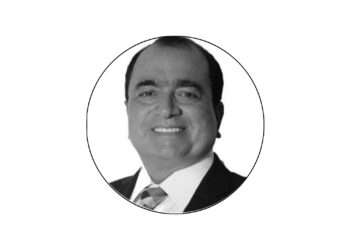We, as an example, have three spiritual leaders in front of you:
Hazrat Maulana Zawar Hussain Shah (May Allah have mercy on him)
Dr. Ghulam Mustafa Khan (May Allah have mercy on him)
Mufti Wali Hasan Tonki (May Allah have mercy on him)
These three great personalities maintained a regular spiritual connection. Have you heard about their disciples or successors in Karachi? Do you know about the discussions or anecdotes related to their disciples or successors?
You may not have witnessed or heard such things because they were true sufis. True sufism is the world of piety, and we clarified a few days ago that the first condition of piety is ‘secrecy.’ Now, let me present a couple of examples of secrecy to you.
In the intellectual and literary circles of Karachi, Dr. Jameel Jalibi is a legendary figure. He served as the Vice-Chancellor of the University of Karachi thirty to forty years ago. If you look at his demeanor on YouTube or Google, you won’t believe that this person could also be a man of piety. You won’t hear about his piety in literary and intellectual circles because he never used to tell anyone after the call to prayer,
‘Let’s go, offer the prayer.’
And Dr. Jameel Jalibi was very close to Dr. Ghulam Mustafa Khan. He would bring his Sheikh (spiritual leader) home, sit at his feet, and serve him. And when did the secret reveal? Years after his death.
Another example: A great saint, twenty years after the passing of our father, said to us:
‘Your father was our spiritual brother.’
We were shocked because, according to our knowledge, neither our father had any Sheikh, nor had we ever heard anything positive or negative about sufism from him. To clear up this confusion, we tried to learn more about different aspects from that saint in an inconspicuous manner. The things he told were understandable. For example, this sentence:
‘Hey, your father was very dear to our revered saint.’
We asked, ‘Which saint?’
‘Our Sheikh, Hazrat Mufti Wali Hasan Tonki.’
Now we know that our father had a very affectionate relationship with Mufti Sahib, but our father always mentioned it in terms of teacher-disciple relationship, never referring to sufism. So, we asked our respected mother:
‘Did our father have any connection with sufism?’
‘I don’t know.’
‘Was he pledged to anyone?’
‘I don’t have any information about that.’
‘Did you see anything in him that indicates his connection with sufism?’
‘Didn’t you see anything? Didn’t anything catch your attention?’
‘No, we are talking about the early days of our childhood.’
After thinking for a while, she said:
‘At that time, he was not at home on Thursdays, from Asr to after Isha. When I asked, he used to say that he was with friends and relatives.’
Now, it is the day and time when the gathering of Mufti Wali Hasan Tonki used to take place. A few days before the demise of our father, some things became apparent, but we never mentioned anything, and we won’t. These are matters between him and Allah. We strongly oppose spreading such discussions, but it is noteworthy that he kept his sufism so ‘secret’ that even close children and the companion of seclusion were unaware of it.
Third example: In Defense, Karachi, the father of a globally recognized cardiologist passed away. When his friends heard the news, they immediately rushed to his house, thinking that someone so educated wouldn’t know much about religion. They advised not to be negligent in washing and shrouding the deceased. Dr. Sahib was not with the guests; he was next to his father’s lifeless body. When asked, ‘Has the washer been called?’ Dr. Sahib looked surprised and said to Imam Sahib:
‘Why wash him? Why would I bath my father? What am I here for?’
Imam Sahib was taken aback. It was a shocking statement. The washing procedure for the deceased is something even the leaders of the mosques have to refresh from the book. When the rows were formed for the funeral prayer, Imam Sahib got ready to lead. However, when the rows were formed, Dr. Sahib himself performed the funeral prayer. Imam Sahib did not lose hope; he was confident that Dr. Sahib wouldn’t know anything about the affairs of the grave. But, Dr. Sahib placed his father in the grave himself, correctly facing his direction. After the grave was covered, standing in front of the head and feet, he recited the appropriate recitation and supplication. We cannot disclose names, but if you ever see Dr. Sahib somewhere, you won’t find any external signs that would indicate his connection with religion. The only distinctive sign known to his close friends is that his congregational prayers never diminish.
So, dear reader, we are presenting a straightforward criterion that whoever is ‘ostentatious’ is not godly, and the worst displays of ostentation are ‘miracles.’ After that, there is a specific level of exclusive status, and then ‘helpless, poor, helpless,’ etc.






























